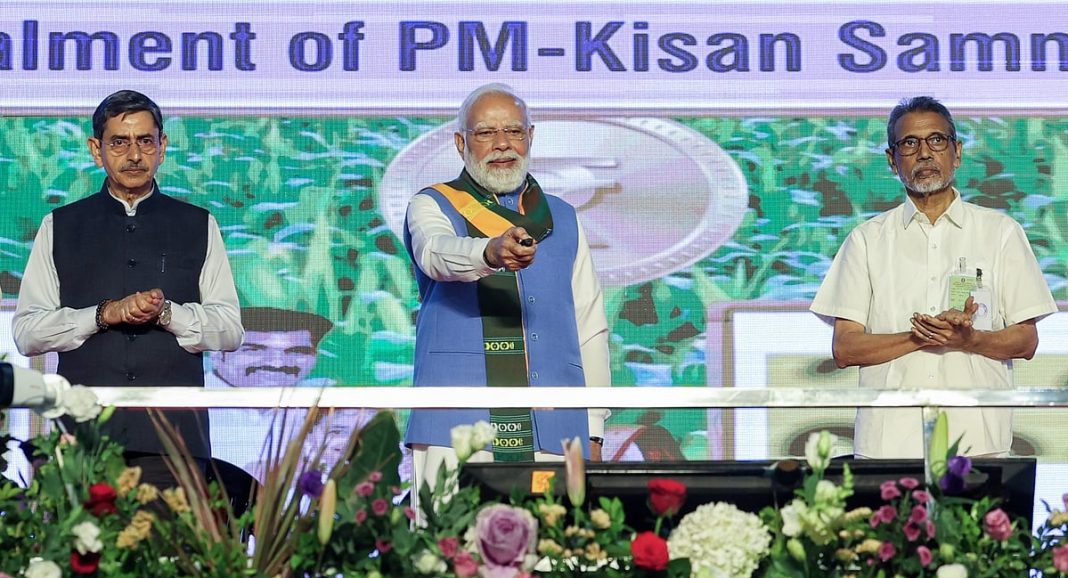Key Takeaways
- PM-KISAN has disbursed over ₹3.70 lakh crore to 11+ crore farmer families
- Latest ₹18,000 crore installment released by PM Modi via DBT
- Scheme provides ₹6,000 annual support in three equal installments
- Over 25% beneficiaries are women farmers
The Pradhan Mantri Kisan Samman Nidhi (PM-KISAN) scheme has crossed a major milestone, disbursing more than ₹3.70 lakh crore to over 11 crore farmer families across India through 20 installments, according to an official statement.
On Wednesday, Prime Minister Narendra Modi released ₹18,000 crore to farmers as part of the 21st installment under the scheme through Direct Benefit Transfer.
Scheme Overview and Eligibility
Launched on February 24, 2019, PM-KISAN provides annual financial assistance of ₹6,000 to eligible landholding farmer families. The amount is distributed in three equal installments of ₹2,000 directly into Aadhaar-seeded bank accounts.
Benefits are available to farmers whose land details are seeded in the PM-KISAN portal, with bank accounts linked to Aadhaar and completed eKYC.
Recent Expansion Drives
A significant saturation campaign under the Viksit Bharat Sankalp Yatra in November 2023 added over 1 crore eligible farmers to the scheme. Within the first 100 days of the subsequent government in June 2024, an additional 25 lakh farmers were included.
This expansion increased beneficiary count for the 18th installment to 9.59 crore farmers.
From September 21, 2024, a special drive cleared pending self-registration cases, approving over 30 lakh applications by State/UT authorities.
Digital Infrastructure and Innovation
India’s robust digital infrastructure – integrating Jan Dhan accounts, Aadhaar, and mobile connectivity – has been crucial to the scheme’s success. The entire process operates online, from self-registration and digital land verification to direct bank transfers.
The scheme has inspired digital innovations including Kisan eMitra, a voice-based chatbot, and AgriStack for personalized farmer advisory services. These advancements are helping modernize Indian agriculture for the future.
State governments have played a vital role in creating a unified, farmer-friendly delivery system for one of the world’s largest DBT initiatives.




